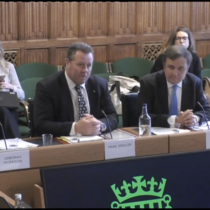Reflections on how Brexit has shaped the British meat industry
Since leaving the EU, the volume of meat we export to Europe has fallen and, despite an increase over the last year, UK meat exports have never returned to pre-Brexit levels. These lower volumes seem destined to continue under the current trade agreement which has added a significant amount of red tape and cost, making UK product less competitive.
And it’s not only Third Country rules and paperwork we have to contend with now we’re outside the EU. Far from reducing the burden of red tape by exercising our new-found freedoms, the UK Government is adding to it by introducing new UK-only regulations which are not mandated by the EU.
In addition, the UK has a worsening labour crisis which is making it hard for companies to maintain adequate staffing levels and is stifling their ability to grow.
In some cases, large meat processors have got around the extra bureaucracy and labour issues by sending larger consignments of whole carcases straight over to the continent to be further processed in European factories. The problem is that none of the value-added work of skilled butchery is being done here in Britain by UK staff; and the value of the product being exported is reduced accordingly. Effectively, a portion of productive GDP and tax revenue has been shifted offshore because the right workers are simply not available in the UK.
But the new trading conditions have impacted smaller meat businesses much harder. They have traditionally relied on the ability to send small, grouped loads of a variety of different products. This is because, after Brexit, each product type now requires its own Export Health Certificate (EHC) regardless of the volume being sent. This has made the ‘groupage’ method of transport unviable, so much of this SME trade has simply ceased.
This is illustrated by a sharp 29% drop in the number of meat and dairy EHCs being applied for. It suggests that there’s been a reduction in the variety of products being sent to the EU as well as reflecting an overall drop in volumes.
A common veterinary agreement (similar to the ‘Swiss-style’ model of trade where the UK would autonomously agree to align with EU standards) would instantly fix this problem.
Looking longer term, the ongoing labour crisis in the UK could also have a dampening effect on export trade. While meat companies can continue to fulfil orders with current levels of staff shortages, it reduces their ability to develop new product lines which the market constantly demands. With such constraints, EU customers could begin to look elsewhere and drift away from UK suppliers.
If the Government wants to see economic growth, British companies will need a workforce and immigration strategy that not only fixes the shortfall in workers right now but allows them to increase their capacity and generate growth in the future.







